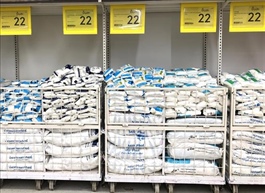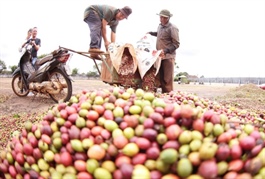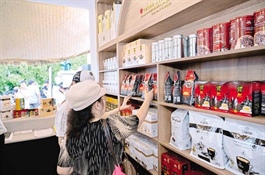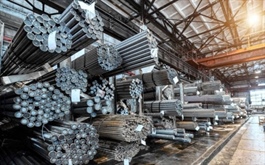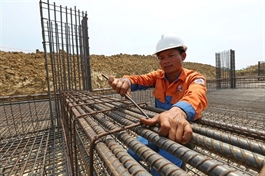Substandard products hinder Vietnamese construction materials on home turf
Substandard products hinder Vietnamese construction materials on home turf
For domestic businesses to feel confident investing in and producing high-quality products that meet consumer demands, strong legal support is still needed to eliminate unfair competition in the construction materials market.
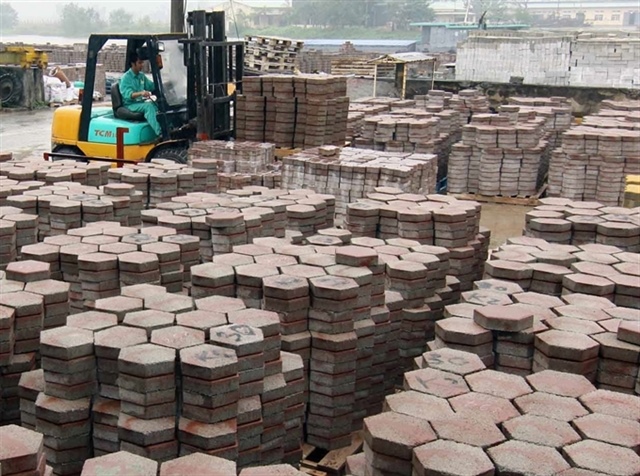
A worker arranges bricks. — VNA/VNS Photo |
Vietnamese construction materials may have the capacity to compete on foreign turf, but they still face difficulties in their home market due to the blurred lines between genuine and low-quality products.
Việt Nam’s construction materials have been exported to over 140 countries and territories, and are still expanding.
However, for domestic businesses to feel confident investing in and producing high-quality products that meet consumer demands, strong legal support is still needed to eliminate unfair competition in the construction materials market.
Experts warned that without strict quality control over key materials such as cement, tiles, sanitary ceramics and construction glass, the construction industry could face sufficient losses.
For example, if a construction project uses substandard materials, it may require repairs and maintenance after a short period, potentially costing 10-15 per cent of the total construction value.
Estimates show that construction materials account for about 60-70 per cent of total construction costs.
If the materials are of poor quality, replacement and repair costs could reach up to 50 per cent of the original material value.
In large projects worth VNĐ100 billion (US$4 million), the use of low-quality materials could result in repair costs of up to VNĐ40 billion.
To address this problem, the Ministry of Construction is enforcing the Prime Minister’s directive to strengthen quality control over construction materials, aiming to ensure project quality and protect consumer rights.
Citizens will benefit by gaining access to products that meet required quality standards.
In response to this issue, the Ministry of Construction's Circular 10/2024/TT-BXD issued effective from December 16, 2024, has helped tackle critical problems.
Lê Nam Hải, Chairman of the Việt Nam Building Ceramic Association (VIBCA), said that this was an important step forward in the management of construction material quality in Việt Nam.
In the long term, enforcing quality control in construction materials would motivate domestic enterprises to improve their products and strengthen their position in the market.
This regulation would provide a crucial legal framework to eliminate unfair competition in the construction materials market.
From a business perspective, Chairwoman of the Board of Directors at SXC Smart Multiplus Investment Corporation JSC Lương Thị Thu Giang said that as a business supplying materials and chemicals for the construction sector, her company had experienced challenging times.
She noted that Việt Nam’s market remained chaotic, lacking clear standards, and appeared to have become a haven for smuggled goods. Many internationally standardised products struggled to reach local consumers.
As importers of internationally certified products, companies sought a level playing field when entering the Vietnamese market.
There needed to be regulatory oversight to establish clear standards and protect businesses that comply with regional and international quality benchmarks, Giang added.
Regulations governing the management and quality control of construction materials needed to be clearly guided, with streamlined procedures to avoid red tape, reduce time and administrative costs for businesses, and align with global practices.
Along with domestic producers, official importers of construction materials are also calling for equal and fair assessments of product standards. This approach both safeguards businesses and ensures consumer rights.
- 07:50 17/06/2025








